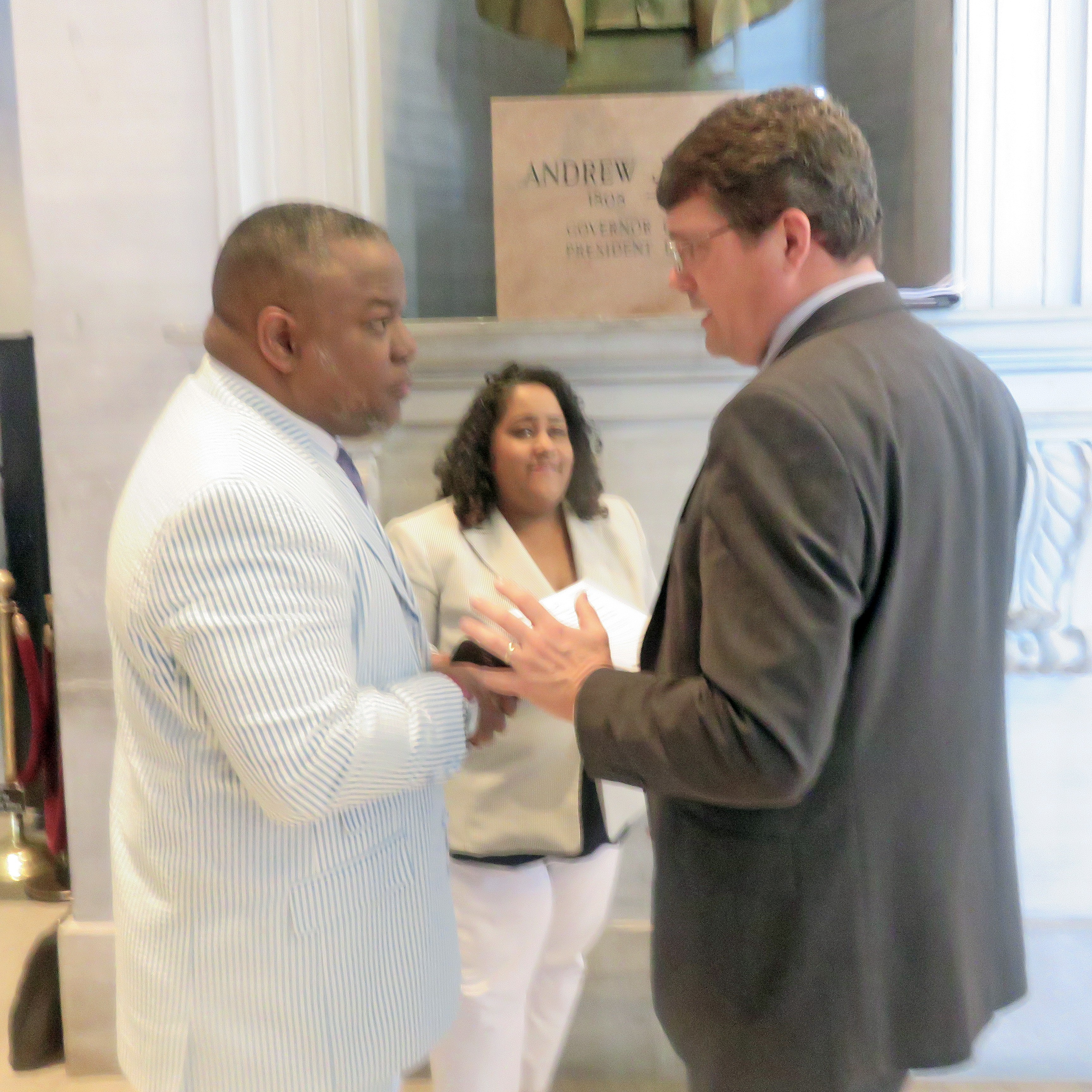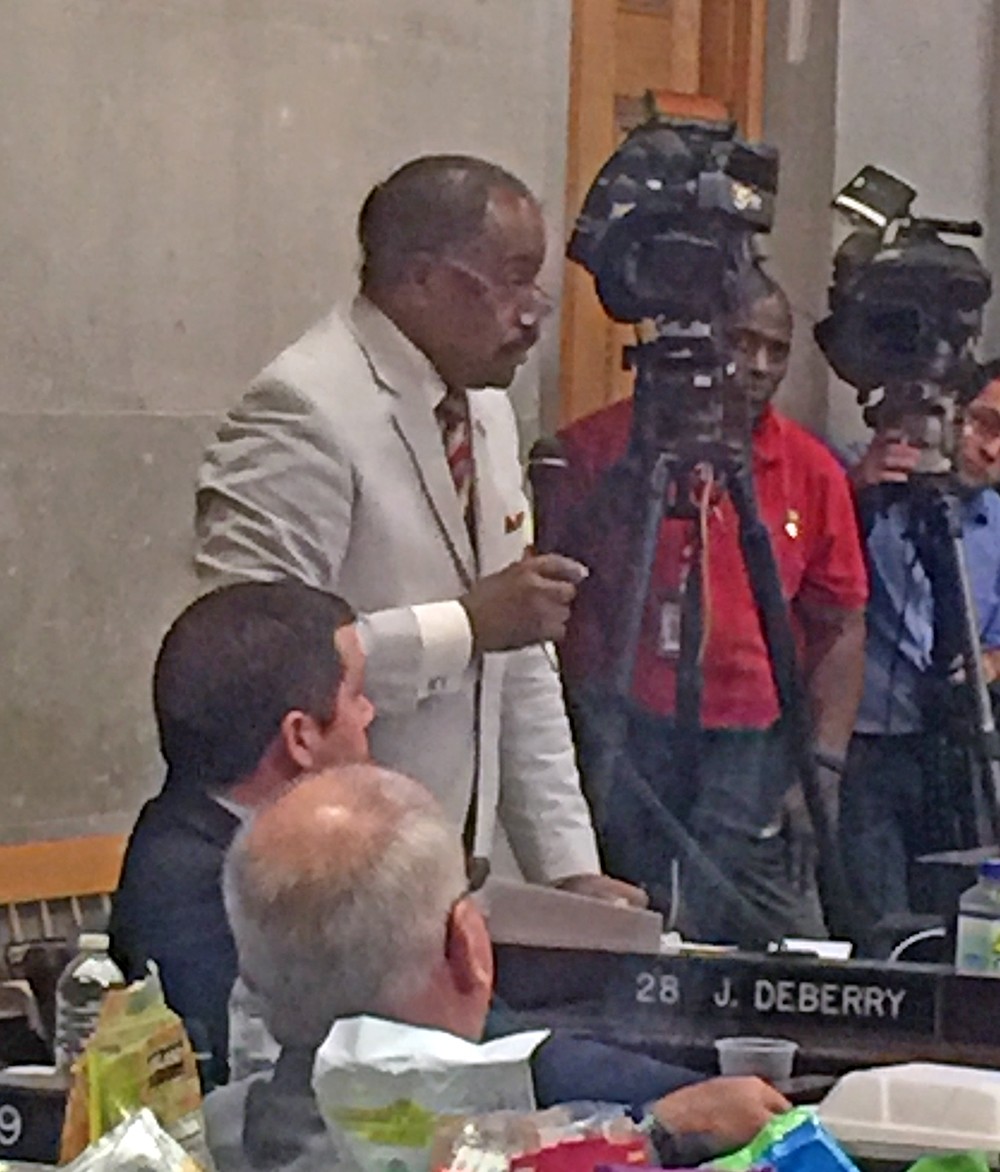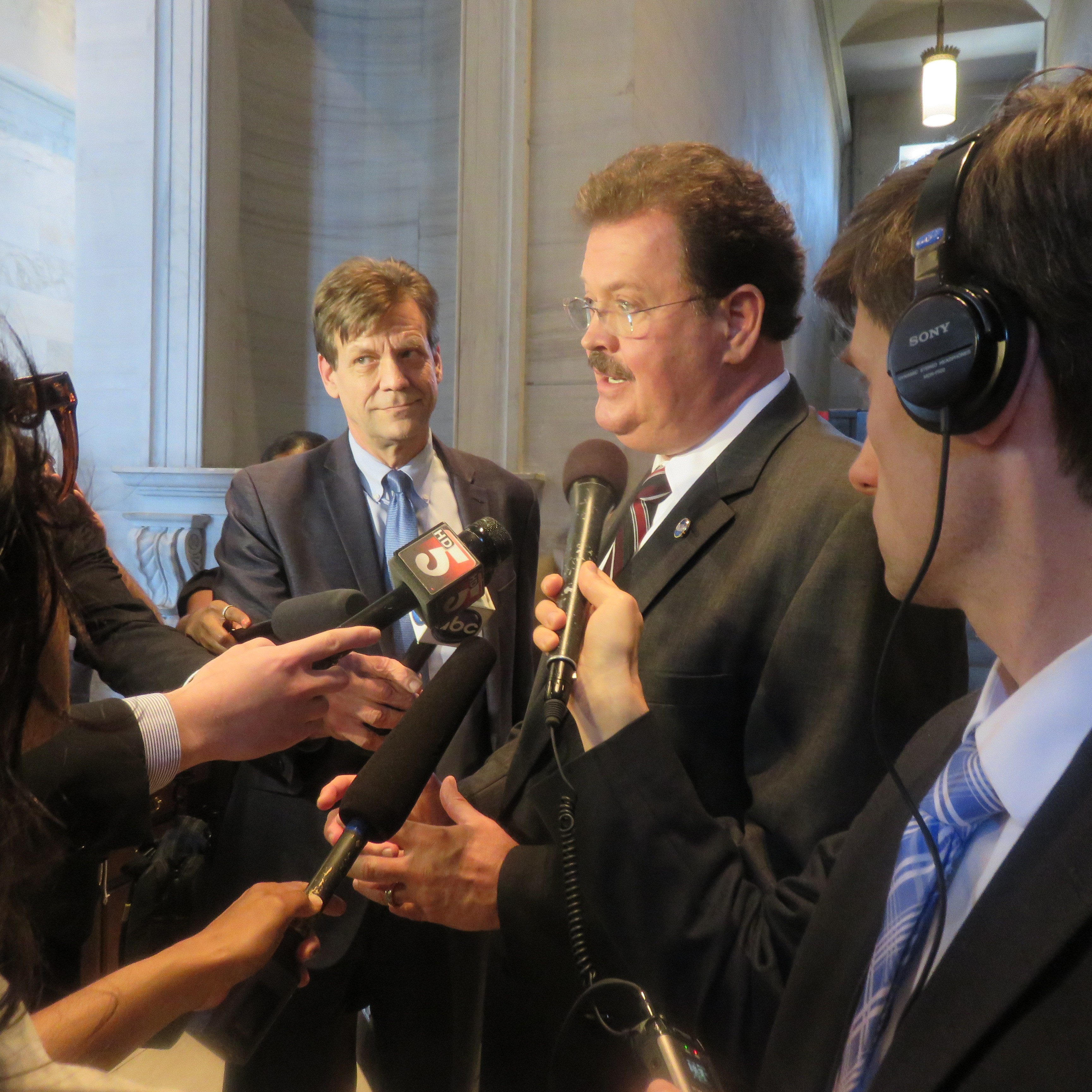 JB
JB
Foes of the override discuss strategy before the vote. L to r : Reps. Antonio Parkinson and Raumesh Akbari, Democrats from Memphis, and Rep. Mike Stewart (D-Nashville).
NASHVILLE — At times it seemed like the legislative debate it was. At other times it seemed like a contest on which side could quote the most scripture — and to what purpose. And, at still other times, (for most of the time, in fact) it played like the pure politics that it also was.
This was the long-awaited vote in the state House of Representatives on Wednesday, April 20, the final day of the Tennesssee General Assembly’s 2016 session, testing the veto power of Governor Bill Haslam on a bill which, in the waning days of session, declared the Holy Bible the official state book of Tennessee.
The bill had passed the House week before last by a margin of 55 to 38. It subsequently passed the state Senate 19-8. But Haslam had exercised one of his rare vetoes — on the dual grounds that the bill manifestly transgressed against the no-establishment-of-religion clause of the federal Constitution and, by making the case for the Bible’s proposed status as a mere historical document, “trivializing” a sacred document.
Variations on that argument were heard fairly consistently during Wednesday morning’s session from opponents of the override — who included several members who had originally voted for the measure.
Just as predictably, proponents for the override repeated arguments frequently made during the original debate on passage — either that the measure contained no religious significance whatsoever or that it did in spades. And sometimes both arguments at once.
In the event, after almost two hours of debate, there were enough crossovers of erstwhile bill supporters to the side of the Governor to defeat the override by a vote of 40 for, 50 against, and 4 abstaining.
Bill sponsor Jerry Sexton (R-Benn Station) had begun his presentation of the override by declaring, “I speak
 JB
JB
Rep. DeBerry waxing eloquent
for the people. They don’t have a voice in this chamber except for the voice that I have.” In fact, though, there were other voices in support of the override, whether or not “for the people.” One such was Rep. Tilman Goins (R-Morristown), who said, “We cannot diminish the Word of God.:
Arguments of that sort were dealt with by Rep. Johnny Shaw (D-Bolivar), who had originally voted in favor of the Bible-as-state-book bill, but now thanked the Govenor “for reminding us we’re trivializing the Word of God, and went on to add, “You cannot hide behind the cross as a sinner” and “If we really want to be honoring the Bible, we ought to make sure that everybody in this state is covered health-wise.”
Rep. Antonio Parkinson (D-Memphis) was on similar ground with an observation from the gospel of Matthew: “When you pray, do not be like the hypocrites…who “love to be seen by others.”
Rep. Steve McManus (R-Cordova) argued in a more secular manner, citing the “establishment” clause of the Constitutiion and saying, simply, “We do not have authority as legislators to pass this bill.”
One of several objectors to that notion was Rep. Terri Lynn Weaver (R-Lancaster), who sang a hymnal line or two and enthused: “What if we pass this, and Tennessee becomes ‘the state on the hill,” showing the world.”that Tennessee reverences God’s Word.” Enshrining the Bible as the official state book would “fan the flame,” she said.
Rep. Mark White (R-Memphis), who, like Shaw, had originally voted for the bill, urged caution that members not “pass a law” without attendint to the more important duty of “changing hearts.” He said, “”Let’s make sure we are comfortable in passing laws…: Jesus Christ didn’t come into world to make laws.”
Back and forth it went, and several legislators, notably Rep. John D JB
JB
Bill sponsor Jerry Sexton (R-Benn Station) meets with reporters after defeat of override.
eBaerry (D-Memphis), a minister, made the point that neither Aye voters nor Nay voters were either more or less godly
than those members on the other side. “This vote does not define me,” said DeBerry. “Start living faith.”
(DeBerry would get the most tumultuous response from the membership when he declared, about those — presumably business interests — who threatened to leave Tennessee if the legislature should take this or that position, “”If folks tell us ‘we’re going to leave Tennessee,’ tell them to go!”)
At length, after several motions to end the debate and “call the question” had failed, the memberrship seemed to talk itself out and finally took time out and voted. The defeat of the override was surely a relief both to the Governor and to the members of the state Senate, who had girded for their own lengthy debate on the issue if the House had acted otherwise.
MTK